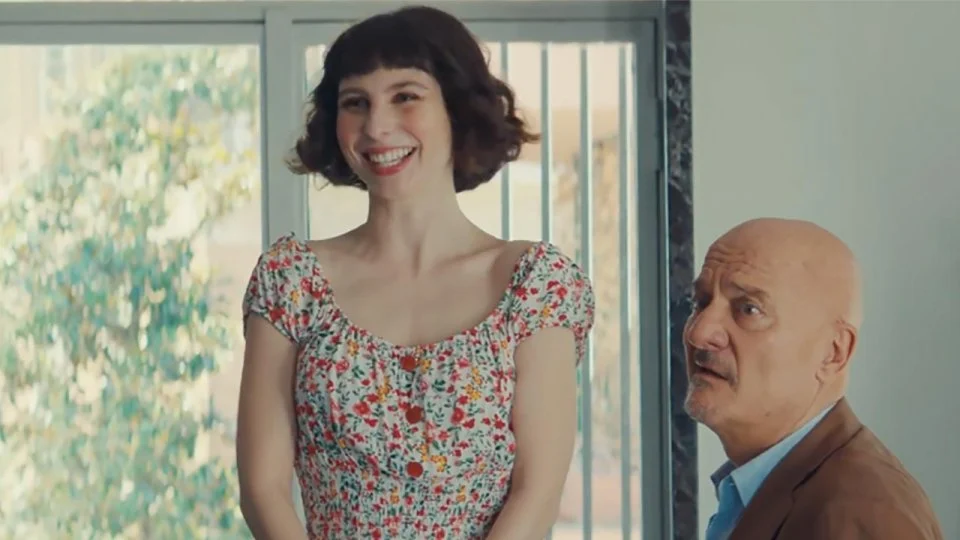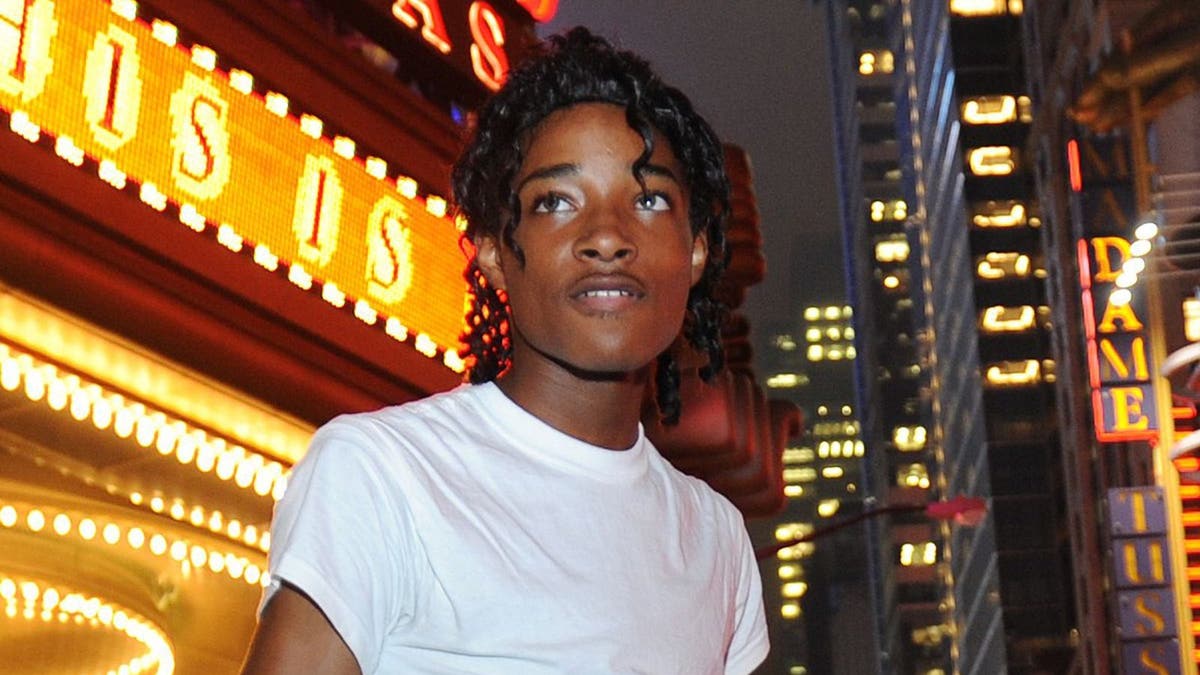A group therapy tells the story of six characters who share obsessive-compulsive disorders, who find themselves in the waiting room of Dr. Stern, a specialized psychologist. Federico, archivist suffering from Tourette’s syndrome; Emilio, taxi driver with arrhythmomania, obsession with counting; Bianca, laboratory technique hyperfocused on hygiene; Annamaria, a perfectionist and hyper-controlled lawyer; Liliana, obsessed with symmetry and repetitive rituals; and Otto, perpetually attached to his cell phone due to his fear of being excluded. The secretary Sonia tries to manage the chaos, while the six, initially anxious, slowly discover that they can be of help to each other. The simultaneous convocation turns out to be an enigma with its own peculiar logic.
The film, directed by Paolo Costella, is the Italian remake of the Spanish comedy Toc Toc (2017), in turn based on the play of the same name by Laurent Baffie. While remaining faithful to the original, A group therapy makes some changes, especially in the ending and in the credits. The screenplay, written by Michele Abatantuono, Lara Prando and Costella himself, tries to adapt the context to Italian reality, but the narrative strength lies more in the rhythm guaranteed by Consuelo Catucci’s editing and Michele Braga’s lively music, than in the text or in the staging.
Claudio Bisio, with his explosive mimicry, and Valentina Lodovini, who gives tenderness to the character of Bianca, are particularly effective. Ludovica Francesconi, in the role of the young Liliana, adds a touch of grace that recalls her performances in Sul Più Bello. Margherita Buy, in the role of Annamaria, recalls at times the emotional depth that she had demonstrated in previous films by Carlo Verdone, such as Ma che culpability noi noi and Cursed the day I met you. However, the film limits itself to a superficial comic register, without ever really delving into the emotional conflicts or traumas that gave rise to the protagonists’ disorders.
Compared to Toc Toc, which explored the themes of mental distress with audacity and a surreal streak, A group therapy it remains on more predictable ground. The original Spanish comedy was distinguished by its paroxysmal crescendo and the irreverence typical of Almodóvar’s comic tradition. Here, however, the film prefers to remain in the comfort of reassuring comedy, limiting itself to bringing out a few smiles. This choice reduces the potential of the story, which ends up being a tamer and less incisive version of the original.
 Group Therapy is a pleasant comedy but without great ambitions, which does not dare to go beyond the limits of the sitcom. It lacks that something that could have made it memorable, preferring to remain in a “reassuring averageness”. It’s a film that entertains at times, but doesn’t leave its mark, missing the opportunity to add depth or innovation to a subject that had already shone in other hands.
Group Therapy is a pleasant comedy but without great ambitions, which does not dare to go beyond the limits of the sitcom. It lacks that something that could have made it memorable, preferring to remain in a “reassuring averageness”. It’s a film that entertains at times, but doesn’t leave its mark, missing the opportunity to add depth or innovation to a subject that had already shone in other hands.
A group therapy (Italia, 2024)
Director: Paolo Costella
Cast: Claudio Bisio, Claudio Santamaria, Margherita Buy, Valentina Lodovini, Leo Gassmann, Ludovica Francesconi, Lucia Mascino
Screenplay: Michele Abatantuono, Lara Prando
Production: Picomedia
Distribution: Warner Bros. Pictures Italia

**PAA:** How does the film “A Group Therapy” balance its comedic nature with the potentially sensitive subject matter of OCD, and is this balance successful in your opinion?
## World Today News – Interview: A Group Therapy – Dissecting a Comic Exploration of OCD
**Host**: Welcome back to World Today News. Today we’re delving into the world of cinema with a discussion on the newly released Italian comedy, “A Group Therapy.” Joining us are two acclaimed film critics, Dr. Amelia Rossi, known for her insightful analysis of character development, and Mr. Marco Lombardi, an expert in Italian cinema and its cultural context. Welcome to you both.
**Dr. Rossi**: Pleasure to be here.
**Mr. Lombardi**: Thank you for having me.
**Host**: “A Group Therapy” presents a unique premise showcasing six individuals, each struggling with obsessive-compulsive disorder, navigating a compelling group therapy session. Dr. Rossi, let’s start with your initial impressions. How effectively does the film depict the nuances of OCD?
**Dr. Rossi**: That’s a complex question. The film does a good job of introducing us to diverse OCD manifestations. From Federico’s Tourette’s to Liliana’s symmetry obsession, each character’s struggle feels distinct. However, I do wonder if the film, in its comedic approach, sometimes skims the surface of the deeply personal and often debilitating nature of these conditions.
**Host**: Mr. Lombardi, as an expert in Italian cinema, how does “A Group Therapy” fit into the current landscape of Italian comedies? Does it offer a fresh take on the genre, or does it adhere to traditional comedic tropes?
**Mr. Lombardi**: It’s definitely interesting because the film is a remake of a successful Spanish comedy, “Toc Toc.” While “A Group Therapy” retains the core structure and humour, it makes some notable changes, especially in its ending. It’s intriguing to see how Italian filmmakers adapt foreign material, trying to balance fidelity to the original with a distinctly Italian flavor.
**Host**: The film features a talented ensemble cast, including Claudio Bisio, Margherita Buy, and Valentina Lodovini. Dr. Rossi, do you think the actors do justice to the complex emotions underlying their characters?
**Dr. Rossi**: I was particularly impressed by Valentina Lodovini’s portrayal of Bianca, striking a delicate balance between vulnerability and strength. Claudio Bisio, with his trademark physical comedy, offered moments of levity, but I agree with the article’s observation that the film leans more towards surface-level humour. There’s potential for deeper emotional exploration that, perhaps, goes untapped.
**Host**: Mr. Lombardi, the article mentions a certain “reassuring averageness” in the film, comparing it unfavorably to the Spanish original’s audacity and irreverence. Do you think this stylistic choice is a conscious decision, a reflection of the target audience, or perhaps a lack of creative risk-taking?
**Mr. Lombardi**: It’s a fascinating question. One could argue that ”A Group Therapy” chooses to prioritize accessibility and light-hearted entertainment over pushing boundaries. Perhaps there’s a conservative streak in modern Italian comedy, favouring familiarity over experimentalism. It’s a trend worth exploring further in Italian film criticism.
**Host**: We’ve observed different angles of this film. Dr. Rossi, Mr. Lombardi, any concluding thoughts on “A Group Therapy”?
**Dr. Rossi**: While enjoyable, the film feels somewhat like a missed opportunity. It has the potential for a deeper impact, but opts for broader comedic appeal, leaving the exploration of OCD at a rather superficial level.
**Mr. Lombardi**: I concur. It’s a pleasant distraction, but it lacks the courage to delve into the complex and often uncomfortable realities associated with mental health.
**Host**: Thank you both for this insightful discussion. We’ve certainly gained a fresh perspective on “A Group Therapy.” For our viewers, we encourage you to see the film and form your own opinions. Until next time, on World Today News.


